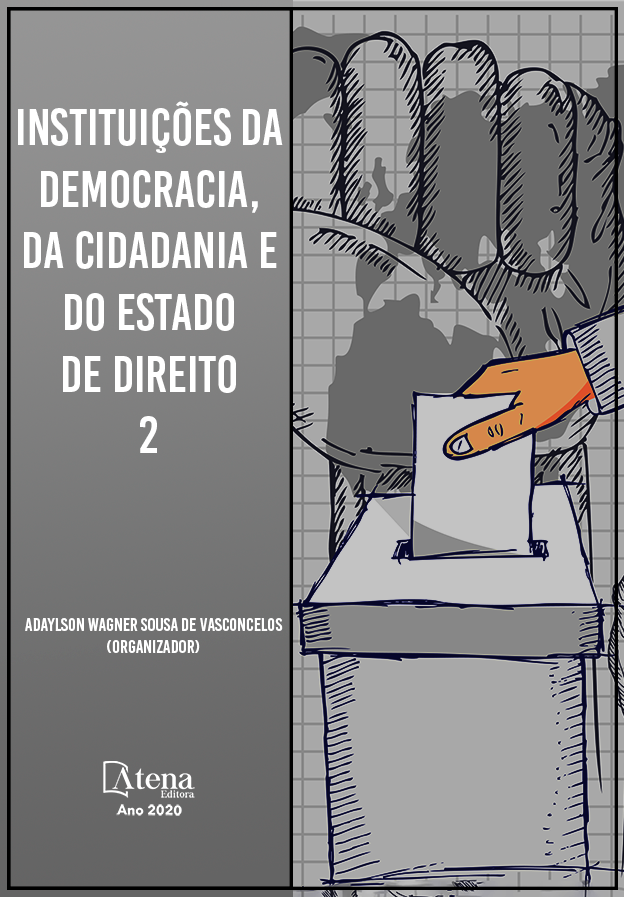
QUANDO O DIREITO À PRISÃO DOMICILIAR NÃO É CUMPRIDO – ENTEXTUALIZAÇÕES E TRAJETÓRIAS TEXTUAIS NOS PROCESSOS JUDICIAIS DE MULHERES INFRATORAS GRÁVIDAS
Neste trabalho, analisamos o discurso empregado em um processo judicial envolvendo duas mulheres infratoras grávidas presas, uma que conseguiu o benefício da prisão domiciliar por meio do Artigo 318 da lei 3689/41 do Código de Processo Penal (CPP) e outra não. Buscamos apresentar, em uma perspectiva etnometodológica do texto, de que forma a entextualização (BAUMAN e BRIGGS, 1990) está ligada à co-producão de textos, suas trajetórias e aos contextos de processos que envolvam tal situação e os recortes possíveis na análise discursiva como prática social e aplicada à linguagem jurídico-institucional. Assim, procuramos pesquisar de que forma os discursos são co-construídos pelas rés e pelos profissionais da área, interpretados, contextualizados, retextualizados e entextualizados até a sentença. Buscamos investigar os discursos escritos e a forma como são organizados incorporando aspectos do contexto (BLOOMAERT, 2001 e 2005) de tal forma que o texto resultante carregue em si elementos da história narrada inicialmente, assim como elementos que apresentem a trajetória dos textos (BLOOMAERT, 2001; CARRANZA, 2010; WORTHAM e RHODES, 2015) e das narrativas co-produzidas pelos profissionais envolvidos em relação ao que foi dito pelas rés no início e retextualizado, recontextualizado até o final do processo (ERLICH, 2007 e 2015). Os dados foram gerados a partir do pedido de prisão domiciliar feito pelo Defensor Público de cada uma das mulheres e da sentença proferida pelo juiz responsável por cada caso. Observamos que as entextualizações do delito, mesmo sendo o mesmo, são feitas de formas diferentes pelos juízes, bem como das leis que regem a concessão dessa pena alternativa para mulheres infratoras.
QUANDO O DIREITO À PRISÃO DOMICILIAR NÃO É CUMPRIDO – ENTEXTUALIZAÇÕES E TRAJETÓRIAS TEXTUAIS NOS PROCESSOS JUDICIAIS DE MULHERES INFRATORAS GRÁVIDAS
-
DOI: 10.22533/at.ed.4402012113
-
Palavras-chave: entextualização, trajetórias textuais, análise do discurso, análise do discurso jurídico
-
Keywords: entextualization, textual trajectories, discourse analysis, legal discourse analysis
-
Abstract:
In this paper, we analyze the discourse used in a judicial process involving two imprisoned pregnant offenders, one who obtained the benefit of house arrest through Article 318 of Law 3689/41 of the Brazilian Criminal Procedure Code (CPP) and another one who did not. We present, in an ethnomethodological perspective of the text, how entextualization (BAUMAN and BRIGGS, 1990) is linked to the co-production of texts, their trajectories and the contexts of processes that involve such situations and the possible perspectives in the discursive analysis as social practice and applied to the legal language. Thus, we seek to examine how the discourses are co-constructed, interpreted, contextualized, retextualized and entextualized by the defendants and legal professionals until the sentence. We investigate written discourses and the way they are organized by incorporating aspects of the context (BLOOMAERT, 2001 and 2005) in such a way that the resulting text carries elements of the story initially narrated, as well as elements that present the trajectory of the texts (BLOOMAERT, 2001; CARRANZA, 2010; WORTHAM and RHODES, 2015) and the narratives co-produced by the professionals involved in relation to what was said by the defendants at the beginning and retextualized, recontextualized until the end of the process (ERLICH, 2007 e 2015). Data was gathered from the request for house arrest made by the Public Defender of each of the women and from the sentence given by the judge responsible for each case. We note that the entextualizations of the crime, even though it is the same, are made in different ways by the judges as well as the laws that grant this alternative penalty for women offenders.
-
Número de páginas: 20
- Deise Ferreira Viana de Castro


